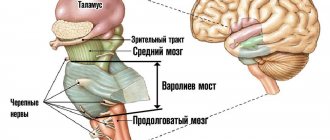Home>Articles>Alcohol psychosis - delirium of jealousy
quick menu (hide)
- What is delirium of jealousy
- Symptoms and course
- Reasons for appearance
- Symptoms of psychosis
- How to treat the disease
Alcoholic delirium of jealousy is a chronic alcoholic psychosis. His main idea is adultery. The condition is gaining strength gradually. For quite a long time, others may not notice any changes in the personality of a loved one. The disease passes with the creation by the patient of a whole system of specific ideas, more and more distant from the real state of affairs.
- The patient may spy on loved ones, making unfounded accusations from time to time.
- He may start demanding confessions.
- The patient's behavior may display traits of sadism towards innocent relatives.
Ideas that are a consequence of an altered state of consciousness are observed in the patient even during a period of stable remission , when he does not drink alcohol for a long time. Only specialized medical care can achieve a reduction in delusional states.
What is delusion of jealousy?
This condition refers to psychosis that occurs as a result of prolonged alcohol abuse. The condition occurs in 1-3% of cases of alcoholic psychosis. It intensifies gradually and implicitly. This makes the disease invisible to those around the patient - colleagues, friends and relatives. Only family members can begin to suspect something is wrong quite early. The disease intensifies when alcoholism enters the second or third stage. Most often men in the age group over forty are susceptible to this psychosis.
Symptoms most often worsen by age fifty. In women, delusions of jealousy practically do not occur.
Delusional ideas
If in the previous case the man is sure that his girlfriend has a lover, then at this stage he knows this for sure and can even name the name of his rival. He no longer needs to search for evidence, but sees it in the most harmless details. For example, he can explain a girl’s choice of clothes by saying that her “passion” likes this blouse. At this stage, ideas of jealousy completely subjugate a person’s behavior. From a psychological point of view, delusions of jealousy are a mental disorder, a disease, and it is impossible to cope with it on your own.
Symptoms and course
The main features that distinguish this psychosis are the highest degree of systematization. The disease progresses gradually. The flow is accompanied by:
- increased psychoorganic abnormalities,
- an increase in the level of aggression,
- disturbance in social behavior.
During the intensification of psychosis, the patient may show aggression towards loved ones. He becomes cruel, he can beat or even kill a close relative. Psychosis has a chronic course, with periodic exacerbations.
The treatment that a person suffering from this type of psychosis should resort to should be specialized , provided by narcologists and psychiatrists.
Why is pathological jealousy dangerous?
Morbid jealousy harms not only those who are jealous, but also the jealous person himself. In especially severe cases, attacks can result in a suicide attempt. This is because it is the jealous person who considers himself the injured party. And he often tries to solve this problem in destructive ways. In milder forms, it can lead to severe depression. This is why it is so important to promptly treat jealousy in men.
It can also be a symptom of love addiction, which is a learned behavior that can also be changed.
It also affects children: they unconsciously adopt this form of behavior and subsequently transfer it to their own relationships. And an unhealthy atmosphere in the family does not contribute to a happy and calm childhood, which means that neuroses in the child are inevitable.
For a partner, a man’s jealousy is fraught with the loss of personal safe space, the severance of all external contacts and, ultimately, isolation. A woman becomes completely dependent on a man. She simply does not have the opportunity to break off the relationship, because she has nowhere else to go and nothing to live on. Needless to say, this situation is extremely dangerous. A man can feel unlimited power over a woman and react sharply to her attempts to break out of captivity.
Things can even go as far as physical violence in response to “disobedience.” And this is the main danger of this pathology.
There are many known cases when, in a fit of jealousy, a man beat a woman, inflicted serious injuries on her, and sometimes the woman, alas, did not survive. The same fate can befall an imaginary “rival”, and even children. Therefore, if your man is prone to this behavior, you need to immediately look for a solution to the problem.
Causes
The main reasons for the formation of the disease are considered long-term drinking of alcohol . Uncontrolled systematic abuse leads to the formation of this psychoorganic disease. Most often, the syndrome develops in people with epileptoid or paranoid personality accentuation. Even before the formation of the disease, such a person may be:
- self-centered,
- distrustful,
- suspicious
- prone to strict regulation of the lives of loved ones and demands to strictly follow the norms and rules created by him.
During the premorbid period, the patient has a desire to form highly valuable ideas for himself. Most patients suffered from continuous long-term alcoholism (more than ten years). Such patients experience alcoholic personality degradation .
There have been cases of delirium tremens and other alcoholic psychoses. Patients suffer from severe dysfunction of internal organs. There is alcoholic encephalopathy , alcoholic polyneuritis. They also have other diseases, the appearance of which is caused by the presence of chronic alcoholism.
How to deal with jealousy: advice from a psychologist
Olga Fufaeva, a psychologist at the Russian representative office of the Institute of Remote Psychology, comments on the situation:
“Modern psychology has long recognized strong jealousy as a pathology. This is a model of behavior learned from childhood. Therefore, if you have not done anything wrong to your partner, do not torment yourself needlessly.
If you are faced with strong jealousy from your partner and this causes unbearable discomfort, but at the same time you have decided for yourself that you want to save the relationship, then you need to know how to behave with a partner (jealous). Here are some recommendations:
1. Try to adjust your behavior. Pay more attention to your partner, praise him more often, talk about how much you value him and your relationship. Show tenderness and care.
2. Under no circumstances compare your partner with other men; resist the temptation to use your friend’s husband, your colleague, or even your father as an example.
3. Answer questions calmly. When a jealous partner pesters you with questions about where you were and what you did during the day, be patient and do not show irritation. Describe in detail how you spent the day, what you did, what emotions you received - awareness of your actions will make your partner calmer.
4. If you are late at work, stuck in a traffic jam, or force majeure has occurred, take a minute to warn your loved one that you will be a little later. This way he won’t have to worry about you again.
5. Don’t let your partner know the details of past relationships. Don’t talk about your exes, especially don’t use them as an example to your current chosen one.
6. If you have male friends with whom you periodically communicate, but your partner, due to his jealousy, forbids you, you can try to introduce him to your circle. Since the unknown is always scary and gives your partner another reason to imagine unpleasant events and possible betrayals, meeting friends will help him feel safe and will certainly bring you closer.
These recommendations can help make your relationship calmer and more trusting. But do not forget that your emotional comfort in this relationship and safety should come first. Therefore, if your partner’s jealousy has crossed boundaries when you are risking your health and even your life, think about whether these efforts and your patience are necessary, or will you be happier without constant tension and fear?
Symptoms of alcoholic delusions of jealousy
The formation of psychosis occurs gradually. At the initial stage, various suspicions are expressed by patients extremely rarely, and only when intoxicated or in a state of severe withdrawal. But over time, he develops his own delusional explanation of reality . It occurs not only when a person is under the influence of alcohol, but also when he is absolutely sober . The formation of the disease is facilitated by the deterioration of relationships in families, the cause of which is the drunkenness of one of the family members.
Insofar as psychosis is formed on the basis of the current discord in families (quarrels, disputes and showdowns). The first accusations made may look, in such cases, quite plausible to others . But subsequently, the patient’s statements become less and less plausible, completely lose touch with reality, become systematized and acquire many “realistic” details. At this stage, illusions , expressed in an ironic or sarcastic form, in the form of half-hints or randomly thrown phrases overheard by the patient, in which he catches the discussion of those around him about his personal life.
- The patient's behavior becomes more active.
- His statements during quarrels can be supplemented by actions that “expose the unfaithful spouse.”
- Patients organize surveillance of loved ones, try to provoke their other half, or set up situations in which, as they think, “betrayal” can be detected and it can be proven.
- The patient can turn to the superiors of the other half with a request to help in the situation, reveal infidelity or influence the “unfaithful” spouse in order to save the family “for the sake of the children.”
Lack of treatment leads to worsening psychosis. The patient experiences confabulations in the form of false memories and infidelity of a loved one. He begins to think and claim that the other half not only began to cheat on him recently, but did it throughout their entire life together. The patient claims that the children are not his family. They are born from lovers. This leads to the fact that the patient’s attitude towards children sharply worsens.
As evidence, he can cite a lot of invented “facts”:
- based on false memories
- other people's "stories"
- or personal presence during infidelity.
But the patient does not say anything about how he behaved during the establishment of the fact of infidelity of the other half. This is typical even for those cases when, according to him, he was present at the “fact” of betrayal.
In some cases, psychosis may be associated by the patient with other ideas (for example, harm, witchcraft or poisoning). Gradually, more and more aggression and elements of sadism appear in human behavior. Cases of violence against other family members (for example, against “strange” children protecting the mother). The reality murder becomes obvious.
Much less often, the patient develops a feeling of aggression towards the “rival”. Even if he knows the “lover” of the other half well, aggression towards him does not manifest .
Most often, psychosis goes undiagnosed for a long time. This is explained by the fact that the patient initially tries to hide his suspicions . This happens until the moment their idea is fully formed. In some cases, a person manages to hide psychosis and cover up an act of violence, even to the point of killing his other half.
People who develop this disease pose a huge threat to others. Since they manage to hide their condition for a long time, doctors cannot:
- conduct extensive surveys confirming the formation of delusions of jealousy
- and do a test with alcohol (a 20 percent solution of which is administered to the patient and delusional deviations are examined)
The patient does not share with the doctor his suspicions about his spouse’s infidelity.
How to get rid of feelings of jealousy
If jealousy arises as a reaction to real external events (the departure of a loved one for another, unrequited love, lack of attention), then there is no need to specifically get rid of it. In such cases this is normal. Psychologists recommend waiting it out (“press pause”), switching gears (going on vacation or working with your head), working with your anxiety and your, usually in such cases, low self-esteem. Psychologists have a lot of exercises and activities in their arsenal for this type of help: special trainings, psychotherapy using the symboldrama method or emotional-imaginative therapy.
In cases where a feeling of jealousy covers the entire consciousness, subordinates behavior, changes perception, then the help of a psychotherapist or psychiatrist will be required. In mild cases, pathological jealousy manifests itself in the form of obsessive thoughts; a person may remain critical of his condition and understand that he cannot cope with it on his own. In severe cases, the preoccupation turns into delirium (erroneous conclusions that cannot be dissuaded), critical understanding is lost, and here help is only possible in cases where relatives notice this and can arrange an examination by a psychiatrist. Only treatment can get rid of such feelings of jealousy.
What symptoms accompanying feelings of jealousy should be noted as dangerous and requiring the help of a doctor:
- Checking someone else's phone, mail, social networks and other personal correspondence. Checking personal belongings. Regularly and for no reason.
- A strong belief that “he (she) is definitely cheating on me” without evidence of cheating.
- Sleep disturbances in the form of late falling asleep and (or) early awakenings.
- Decreased appetite, weight loss.
- Aggression.
- The feeling that others are “discussing, judging or hating me.”
- Guilt.
Alcoholic delirium of jealousy: what to do
Treatment for this disease takes a long time . It must be carried out in a specialized psychiatric or drug treatment hospital. After:
- detoxification carried out,
- vitamin therapy,
- A course of neuroleptics uses psychiatric and psychotherapeutic influences.
Persistent deep delirium is eliminated using insulin comas. The patient is discharged only after the delusional idea has been reduced and the aggressive tendency has been completely eliminated.
Patients suffering from alcoholism are able to mislead doctors by hiding the manifestations of the disease, trying to assure others and the doctor of their excellent condition and trying to speed up discharge. A patient suffering from delusions of jealousy is discharged only after a verdict made by a medical commission. For three years, such patients remain registered with narcologists and psychiatrists. Exacerbation of the disease leads to immediate hospitalization. If the patient does not want to be treated, he may be forcibly hospitalized.
Even in a state of long-term remission from alcohol dependence, such patients can retain delusional ideas. But abstaining from alcohol for many years can weaken the delirium of jealousy. The patient is able to “forgive” the spouse, consider the “incident” to be unimportant, and strive to improve the relationship. And only 30% of patients who completely stop drinking alcohol achieve full recovery .
Why is a person jealous?
Yes, moderate jealousy is a constant companion of love. But feelings of jealousy and jealous behavior are two different things. Perhaps, each of us tends to experience the fear of losing a loved one, but it is important to be able to cope with this feeling on our own, without causing harm to our loved one. But if your husband or boyfriend is jealous of you without any real reason, and even more so, demands that you change your behavior for his sake, we can confidently talk about pathological jealousy. [2]
It is also important to understand that this is not a character trait, but a pathological pattern of behavior. A jealous person becomes like this because of attitudes learned throughout life, but with the right approach, the behavior pattern can be corrected.
The causes of jealousy can be childhood trauma, self-doubt, a sense of ownership, and past negative experiences. Let's talk in more detail about each of them.
Negative experience
This is the simplest and most understandable reason. For example, in the past a man was faced with his wife’s betrayal. Or I often learned about women’s infidelities from my friends, colleagues, and family. And, most likely, this happened more than once. Of course, a person unconsciously transfers this experience to his real life. There is a strong belief in his mind that all people cheat sooner or later, which means that sooner or later you will betray him. Subconsciously, and sometimes completely consciously, he expects such an act from you and tries to keep you from doing it.
Childhood trauma
The reason may also be the following story: parents loved their brother or sister more, and systematically deprived their second child of attention. In such a situation, a person lives in jealousy from childhood and gets used to it. Unconsciously, he learns that there is someone better than himself, that someone is loved more, that he is the odd one out in the family - and these attitudes are transferred to any relationship, including romantic ones.
Let's teach relationships without jealousy
BUY ] WATCH VIDEO ABOUT THE SERVICE[/anchor]
Another reason may be tense relationships with parents, lack of love in childhood. Having matured, a man continues to look for a source of love from the outside. And when he finds it in a partner, it can be difficult to “share” her with someone else - what if he doesn’t get love and warmth.
Diffidence
Numerous complexes can also lead to a man being groundlessly jealous. The basis is the fear that the woman he loves will “see through” him and leave for someone who is more beautiful, richer, smarter or better in bed. As a result, a person sees a rival in every casual acquaintance.
Sense of ownership
Traditional culture prescribes a man to be the “stronger sex”, the head of the family, to make important decisions alone, and to provide for the woman. Accordingly, the woman herself is expected to be submissive and self-sacrificing—she must forget about everything for the sake of her family. These attitudes are imposed from childhood and, growing up, some men feel their unlimited power. Such a person perceives his wife as his property, completely controls her life, sets rules and prohibitions. And, of course, he gets very angry when “property” allows itself to go beyond these limits.
Mental disorders and other illnesses
In rare cases, morbid jealousy can be a symptom of a range of mental disorders, such as depression and schizophrenia. This behavior can hide alcoholism, organic personality disorder, and even brain infections. Therefore, if there are accompanying symptoms, it is necessary to treat the cause, not the effect. [3]
Paranoid jealousy
Paranoid jealousy is a special form of expression of emotions of a person who is sure that his partner is cheating on him or is going to do so.
In most cases, suspicions are completely unjustified and have no logical basis.
Often a person simply comes up with some situations in which he could blame his partner.
At the same time, it is completely impossible to convince him or calm him down - this state is similar to any attack of aggression or anger.
Causes of Othello syndrome
To date, there are no studies that fully explain the cause of this syndrome. There are, however, many factors that influence the development of the condition. Some of them are: alcoholism, schizophrenia or various addictions.
Other studies have linked Othello syndrome to neurodegenerative diseases such as Alzheimer's or Parkinson's disease. Some experts believe there is a link between the syndrome and brain damage. This means that the cause of the syndrome may be physiological.
It's not just a matter of behavior. There is also an emotional component related to self-esteem that we should not forget about. Researchers still have a lot of work to do to fully understand the causes of this syndrome.
What happens next?
Of course, women feel humiliated and insulted: after all, they are suspected of sexual infidelity or, at least, of striving for this infidelity, while they do not even think about cheating. Constant persecution “all over the field” quickly exhausts the psyche, and a year or two after the start of their life together they fall into real depression. The depressive state of a woman, tormented by suspicions of infidelity, is unusually insidious: it creeps up slowly and unnoticed - after all, the jealous person “rolls over” his victim gradually, his suspicions unfold week after week, month after month. And the victim, gradually falling into depression, firstly, does not clearly connect her condition with her husband’s behavior, and secondly, forgets how cheerful she was before she fell under the skating rink of suspicion.
It is the depressive state that prevents the victim from escaping from her partner - she does not believe in herself, does not believe that she can live independently, can provide for herself, raise a child, start a new family, or at least find a permanent friend. She believes that - with all his shortcomings - this and only this man loves her, and he “must be held on to,” and his suspicions and reproaches “must be endured.” “Who needs me like that?” – the patients say in one voice, completely forgetting that just a few years ago they had many contenders for their hand and heart. Trying to escape depression and decreased self-esteem, a significant portion of these women actually start an affair or at least a short-term (one or two) sexual relationship. They have been humiliated so many times that they rightly believe that they have the right to some kind of moral compensation. This is the main paradox of jealousy: the goal of the jealous person is to prevent potential betrayal, but, as a rule, he achieves the completely opposite situation.
Jealousy always looks through a telescope that makes small objects big, dwarfs into giants, suspicions into truths.
Miguel Cervantes de Saavedra








